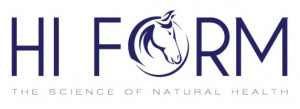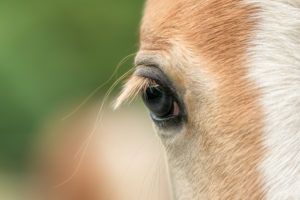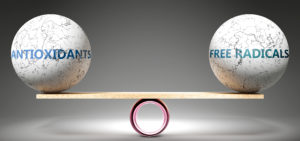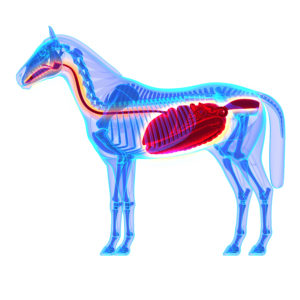Posted: 1st April 2021 | Back to news feed

by Antoinette Foster Dip Nut Equine Nutritional Therapist, Medical Herbalist © 2020
Allergies of various types are an abnormal response to a weakened immune system - in these cases what may be quite harmless in normal circumstances may then become a problem and allergens such as pollen and reactions to insect bites or certain types of feed can become an issue. Just about anything can trigger an allergic reaction in horses, these reactions can range from quite mild to serious.
Allergic reactions can include respiratory problems, skin irritations itchy and swollen eyes, coughing, diarrhoea, hives and irritations to the nose, mouth and skin, not to mention impacting digestive health. Some horses can react to insect bites such as mosquitoes.
But most importantly, if you support the immune system then you reduce the risk of horses having an allergic reaction.

Phytonutrients are a reasonably new way of controlling inflammation and the negative effect that it has on the horse’s body. These are natural compounds and have been shown to have an excellent effect on supporting immune function.
Many plants produce flavonoids, carotenoids, polyphenolics and anthocyanins all on their own to protect them from oxidative damage.
Flavonoids are one of the largest class of antioxidants and researchers have identified approximately 5000 flavonoids in various foods. Polyphenols are a smaller class of antioxidants that scientists often refer to as phenols. Terms such as phytonutrient and phytochemical are a more generic term that are often used by researchers to describe nutrients in antioxidant chemicals in plants.
Antioxidants are generally found in brightly coloured fruits, berries, grapes, citrus fruits and green leafy vegetables and plants.
Other antioxidants that are very effective are Vitamin E, Vitamin C, Beta Carotene and Selenium. They all have extremely positive effects on free radicals and the damage that they cause.
Antioxidants have a major impact on free radicals. Oxidation is a very natural process that happens during normal cellular functions. Just by breathing, exercising and breaking down food, the horse’s body creates free radicals. Whilst the body metabolises oxygen very efficiently, approximately 1 or 2% of the body cells are damaged in the process and their molecules turn into free radicals. Free radicals are unstable molecules, with unpaired electrons. The main problem with free radicals is that they often injure the cell, damaging the DNA which creates the seed for disease.
Antioxidants actually donate an extra electron to the free radical which neutralises it. Once it is neutralised, the reactive free radical chain ends which prevents cell damage. This reduces the risk of degenerative diseases. It is important to find a balance between the exposure to harmful free radicals and the right balance and intake of protective antioxidants.

Providing the horses body with sufficient antioxidants and supporting the immune system is really important for overall health and well-being in any situation. A good, well-balanced formula can be used on a daily basis to support immune function and prevent the risk of allergy-based conditions. There are a number of highly effective antioxidants in the form of herb extracts and plant materials. Some of these include Grape Seed extract, Turmeric (Curcumin extract), Ginkgo Biloba and Ginger Root extract.
Generally speaking, equine diets tend to lack fresh antioxidant compounds; horses tend to be fed dried hays and hard feeds. Many of the current Premix and pellet feeds are highly processed and refined, which further reduces the antioxidant capacity.
Supplementing with a well-balanced antioxidant rich formula and feeding a natural balanced diet will go a long way to protecting the horses body from the effects of free radicals. This will also reduce the risk of inflammatory diseases and assist with the horse’s immune system, respiratory function and cardiovascular health. A healthy horse and a healthy immune system will always reduce the risk of disease which includes allergies.
Important note: Many processed feeds and pellets are low in roughage and contain many by-products.
One of the most important aspects of managing allergies is digestive health. 60% of lymph tissue surrounds the digestive tract, horses can be exposed to foreign substances that can cause illness, so the digestive system plays a very important role in maintaining a healthy immune function.

The GI tract of the horse is highly developed but also quite sensitive therefore the digestive system and the way it functions can be easily upset. Even stress can cause digestive disturbances which can include physical, mental, environmental, drugs and poor nutritional intake. Healthy strong digestive enzymes can help to maintain and restore the normal function of the digestive system, in doing so it can increase absorption and actually have an anti allergy effect. Using a higher dose of pro and pre-biotics can also have a huge benefit on gut bacteria, this can also reduce pathogenic bacteria and their toxins and reduce inflammation and improve digestive.
A good plan
Using high-quality nutritional interventions that contain powerful antioxidants and digestive support can improve the outcome for allergic reactions.
I recommend the high powered formula to support the immune system and digestive health and an excellent symbiotic pro and pre biotic. I also recommend feeding a totally natural diet and one that is well balanced and suited to the individual horse. It is possible to access tailor made custom blends for specific issues.
For further information on the management of allergies, digestive health and supporting the immune system please contact hello@hiformequine.co.uk or call 01183 247471.
The Equestrian Index newsfeed is compiled from articles submitted by advertising members and expresses the opinions of those members. Watsons Directories Ltd shall not be held liable for any inaccuracies or mis-statements therein.